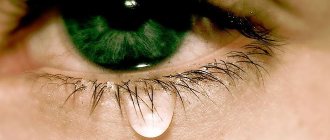In almost any work group, and often in families, the problem arises that someone is too cold, and someone is too hot. The first ones wrap themselves in sweaters, rugs, blankets and do not get out of woolen socks, the second ones prefer to wear T-shirts and sit in a room with the windows wide open. Why we feel the climate differently, as well as how to solve this problem without resorting to conflicts, read the article.
Normally, our body temperature is maintained at 36-37 degrees, fluctuating slightly throughout the day. This constant temperature is ensured by balancing the mechanisms of heat transfer and heat production developed by our body.
Thanks to the coordinated work of the heat regulation mechanisms presented above, the independence of our body temperature from fluctuations in ambient temperature is ensured, which distinguishes us from cold-blooded animals.
Our body spends 75% of the energy it produces to maintain a stable body temperature, regardless of weather conditions
It would seem that if the constancy of our body temperature is ensured by the same mechanisms of thermoregulation for everyone, then why do we perceive the same environmental temperature differently? There are several reasons for this, so let's look at it in order.
Women get cold faster
This is far from a myth, but the most proven fact. Back in 1998, scientists confirmed the idea that women are more sensitive to cold weather conditions. This is due to the uniform distribution of subcutaneous fat in a woman’s body, which, on the one hand, ensures better heat retention in the internal organs, but at the same time leads to the fact that the blood rushing to the internal organs does not have time to heat the arms and legs.
Body temperature in women is 0.4 degrees higher than in men, and legs and arms are 2.8 degrees colder
In addition, heat perception in women also depends on the menstrual cycle: depending on its stage, the temperature of the internal organs can fluctuate within one degree. So if you're constantly fighting with your partner for the right to sleep under the duvet, remember that your man really is hot. Men should not be surprised that in the heat, your better half’s hands feel like two “ice pieces”.
Iron deficiency
Iron plays a major role in providing tissues with oxygen. Deficiency of this microelement leads to thermoregulation disorders. As a result, a person constantly feels cold.
Making things from scraps: a master class on sewing cute vintage potholders
Jerry Bowers wants children to ride to school only on his "delicious" bus
Russian “Samodelkins” install wheels with a central nut on the Lada
Iron deficiency most often occurs due to an unbalanced diet. A deficiency of this microelement is often observed in vegetarians and vegans. If you decide to stop eating animal foods, then you should take special dietary supplements with iron.
Pregnancy
Very often, pregnant women complain that they are constantly hot. This phenomenon is a variant of the norm and is associated with the work of a hormone such as progesterone. The role of this hormone is to prepare and assist in bearing a child. In particular, progesterone is responsible for increasing the production of sebum, increasing blood pressure, inhibiting contractions of the uterine muscles, etc.
Generally speaking, the role of this hormone is to create all the necessary conditions for the normal development of the fetus, including temperature conditions. That is why the expectant mother experiences a change in thermoregulation, characterized by a predominance of heat production processes over heat transfer processes.
What can you do
As we found out, whatever the reason behind this phenomenon, it is associated with problems of capillaries and blood vessels. Impaired blood supply to tissues can be corrected to a certain extent. The procedure is not very simple, but useful. In order not to expose the body to severe stress, you should first take foot baths: hot or contrast.
To strengthen blood vessels, it is recommended to go to a sauna or bathhouse. After the steam room, you can swim in a cold pool, this is also very good for your health. A contrast shower is a procedure from the same opera. But we must remember that any such event is stressful for the body and must be approached with caution.
Thyroid problems
Thyroid dysfunction can make you either a cold guy or a hot guy. This is due to the amount of hormones produced by the gland called thyroxine and triiodothyronine. They are responsible for the production of energy in our body (breakdown of glycogen, increase in blood glucose levels, breakdown of fats, etc.).
Hypothyroidism is also characterized by dry skin, splitting nails, brittle and hair loss, puffy face, lethargy and constant fatigue.
With a lack of these hormones, there is a decrease in metabolism and a decrease in the amount of energy produced by the body, 75% of which, as we remember, our body spends on maintaining a stable temperature. Energy deficiency leads to a decrease in body temperature, and, as a consequence, to constant chilliness and intolerance to cold. In medical circles, a decrease in thyroid hormone levels is called hypothyroidism.
In the opposite case, when there is an increase in the level of thyroid hormones - hyperthyroidism, a person is worried about increased sweating and heat intolerance. Such a person is always stuffy and hot, has a rapid pulse, and may have problems with heart rhythm. Despite a normal or even increased appetite, a person with hyperthyroidism rapidly loses weight, and his irritability and nervousness causes a lot of concern to others.
Anemia
Doctors talk about anemia when there are not enough circulating red blood cells (erythrocytes) in the blood and therefore it cannot supply sufficient oxygen to all the tissues and organs in the human body; There are many forms of anemia known, each of which has its own cause, but many of them are characterized by the appearance of a constant feeling of cold, possibly in combination with:
- fatigue;
- apathy;
- headache;
- pale skin;
- difficulty concentrating;
- changes in heart rate.
It is easily diagnosed through tests (primarily blood tests), and treatment depends on the causes of anemia.
Anemia is a condition that is accompanied by a decrease in the number of red blood cells and hemoglobin levels. Otherwise it is called anemia. This pathology can be caused by iron deficiency, vitamin deficiency, blood loss, as well as hematopoietic disorders.
Anemia is accompanied by a constant feeling of cold, fatigue, and pale skin. In most cases, the situation can be improved with the help of good nutrition and taking vitamin and mineral complexes. Anemia caused by hematopoietic disorders requires serious and long-term treatment.
Disorders in the autonomic nervous system
Malfunctions of this system can also lead to increased sensitivity to both cold and heat. The nature of the disturbance in heat perception depends on the influence of which part of the autonomic nervous system prevails over the body - sympathetic or parasympathetic. In the first case (sympathicotonia), increased heart rate, increased blood pressure, chills, cold extremities, pallor, etc. occur.
In the second case (vagotonia), a slowing of the pulse, increased sweating, decreased blood pressure, a feeling of heat in the head and face, weakness, heaviness in the head, suffocation, etc. are observed. These phenomena can be permanent, systemic, local or episodic. Very often mixed disorders can be observed, with a combination of symptoms typical for each case, or their alternate manifestation.
Diabetes
Diabetes mellitus is a serious disease that causes high blood sugar levels. Over time, this affects the functioning of the entire body, complications develop in the nervous system (neuropathy), kidneys (nephropathy), blood vessels (angiopathy), etc. Patients suffer especially hard from sudden surges in blood sugar caused by errors in nutrition, long periods of fasting , skipping insulin injections, stress, intense physical activity. In most cases, during a hypoglycemic state (severe decrease in glucose levels), diabetic patients experience trembling, sweating, weakness, headache, in addition, they often develop speech impairment, numbness of the lips or limbs, and chills.
“Experienced” people already know that in this case it is necessary to eat a piece of bread, drink sweet tea or a couple of shares of chocolate as quickly as possible. Otherwise, hypoglycemia can lead to loss of consciousness and even coma. A similar picture can develop not only in a diabetic patient, but also in a person adhering to a very strict diet with restriction or complete abstinence from carbohydrate foods. It will most likely not lead to a coma, but emergency medical attention may be required.
Diabetics do not tolerate an increase in blood sugar levels as hard as a sharp decrease. However, if the patient violates the diet and does not inject insulin on time, a hyperglycemic state may occur. He feels thirst, headache, increased urination, dry skin, weakness, etc. Chills are not a symptom of hyperglycemia, but rather indicate low glucose levels.
Raynaud's disease and scleroderma
Raynaud's disease most often affects women at a very young age - 20-40 years old and is manifested by a sharp spasm of blood vessels, usually in the upper extremities. Clinically, the spasm is manifested by a feeling of numbness and coldness in the fingers, their pallor and cyanosis, and severe pain.
In turn, Raynaud's disease can only be a symptom of a dangerous systemic disease that affects small vessels called scleroderma. The occurrence of this pathology is to a certain extent associated with a genetic predisposition, but its occurrence is provoked by hypothermia and infections of the nervous system.
Alcohol disease
Chronic alcoholism leads to a number of complications from all organs. Long-term systematic consumption of alcoholic beverages contributes to the development of alcoholic neuropathy, damage to the central nervous system, blood vessels and heart. Most often, chills develop with a sudden withdrawal of alcoholic beverages; it is one of the components of the well-known condition, which is popularly called “delirium tremens.” Sometimes patients with toxic hepatitis or acute alcoholic pancreatitis are brought to hospitals, who also, among other things, feel severe chills without fever.
The only way to treat alcoholism is a complete ban on drinking alcohol. A narcologist can help with this and will select a treatment option for each individual patient.
Symptoms
Symptoms of neurotic freezing include:
- sudden feeling of cold throughout the body;
- sudden freezing of individual parts - arms, legs, face, chest, abdomen;
- sudden chills (out of the blue it literally begins to pound);
- constant feeling of cold in the whole body or its individual parts;
- inability to stay warm in a warm room even in a thick sweater or under a blanket;
- sudden flushes of heat replacing shivering.
The listed symptoms may replace each other. Sometimes only one or two of them may predominate.
The feeling of sudden freezing due to nervousness always occurs at normal body temperature.
The state of the human environment is such that none of the people who are in a calm mental state freeze.
Colds and chills may accompany overt anxiety episodes when a person realizes that they are nervous. But quite often a neurotic patient freezes in the heat when everything seems to be fine. There is no obvious excitement. But there is chronic internal anxiety, which is already so familiar that it is not noticed.
Often, nervous chills, for example, with VSD, complement other symptoms of the “disease”. And it can be combined with any bodily, mental and behavioral manifestations of anxiety: tachycardia and avoidance, dizziness and nausea, frequent urge to urinate and a feeling of derealization.
Sudden fluctuations in blood pressure
Very often, chronic chills develop in people suffering from hypertension and, conversely, prone to low blood pressure. A sharp feeling of cold combined with severe headache is one of the leading symptoms of a hypertensive crisis. In this case, the cause is a sharp narrowing of blood vessels. It may be accompanied by dizziness, weakness, and numbness in the fingers and toes. The main way to find out whether there is a connection with hypertension is to change blood pressure with a home blood pressure monitor. A reading above 140/90 indicates that the permissible norm is exceeded, however, hypotensive patients may not tolerate lower blood pressure well. If a person has lived his whole life with a level of 90/60, then he can develop a hypertensive crisis even at 130/85. In this case, it is necessary to take antihypertensive drugs: first aid drugs are captopril, nifedipine and clonidine.
A sharp drop in blood pressure or constant hypotension may also be accompanied by a feeling of chills. True, unlike hypertension, low blood pressure does not require taking any medications. In this case, a cup of strong warm tea or coffee with 2-3 slices of dark chocolate will help.
Chills are one of the most common symptoms of thyroid pathology. Most often, patients with hypothyroidism, that is, a disease in which the production of hormones in this organ is reduced, complain about it. The cause in most cases is autoimmune thyroiditis, but the exact genesis of endocrine disorders can only be determined in one way: take a test for TSH, T4, T3 and undergo an ultrasound examination of the thyroid gland.
Patients with hypothyroidism complain of constant fatigue, apathy, reluctance to do anything, weight gain despite loss of appetite, headaches, and constipation. Their skin acquires a characteristic yellowish tint, and there is some swelling and pastiness of the tissues, including on the face. They are constantly cold, even if all other family members note that the apartment is hot and stuffy. This condition requires mandatory examination and selection of treatment. Usually, within 2 weeks from the start of hormonal therapy, patients feel significant relief, including chills.
A feeling of cold can be a symptom of another pathological condition, in which the amount of hormones synthesized, on the contrary, is sharply increased. We are talking about thyrotoxicosis. In this case, patients experience a whole range of unpleasant sensations, among which there is often an alternation of chills and a feeling of heat against the background of normothermia. Trembling in the body and limbs, sudden weight loss, mood lability, anxiety, palpitations and a feeling of irregularities in the heart - all these and other symptoms indicate possible thyrotoxicosis. This disease is very serious and requires mandatory medical examination and treatment.
Menopause
Menopause is a difficult period in a woman’s life. Hormonal fluctuations, the feeling that life is entering the sunset phase, stable weight gain, in which regular diets and sports help much less - all this cannot but affect the emotional state of the fairer sex. Many of them say that they often experience peculiar hot flashes: against the background of complete well-being, suddenly a woman feels that she has been doused with ice water, she begins to suddenly freeze, after a few seconds, on the contrary, she begins to sweat heavily and feel a feeling of heat. All this can last for several minutes, after which she feels normal again.
Hot flashes are one of the symptoms of the natural course of menopause. However, if they extremely bother a woman, unsettle her, and she cannot work fully, then in this case she should consult a gynecologist-endocrinologist. Perhaps he will determine her indications for prescribing hormone replacement therapy, which will help smooth out the discomfort and more calmly go through this difficult period in her life.
Stress, emotional turmoil, constant overwork at work, frequent night shifts without the opportunity to get a good night's sleep after them, work associated with increased responsibility - all this takes its toll on the body. Constant activation of the sympathoadrenal system, which is a kind of doping, in order to withstand these loads, sooner or later affects the heart and blood vessels. The feeling of chills that occurs as a result of vascular spasm is one of the symptoms that the body is working for wear. Coffee, smoking cigarettes, alcohol, which are very often taken to relieve stress and calm down, actually do not help with this.
While breastfeeding
The lactation period and the first weeks after childbirth are a difficult period for a woman. It is associated with very great physical fatigue against the backdrop of responsibility for the life of a tiny creature. They are complemented by constant lack of sleep and irregular nutrition. Many young mothers complain of feeling sweating and chills. They are either hot or cold. They are afraid to open the window in the room so as not to catch the baby's cold, but they still often experience chills. In addition to endocrine changes, the cause of this condition can be lactostasis. If a young mother skips feeding time or waits for more than 4-5 hours (if, for example, the child quickly switches to a long night's sleep), then they feel aching, pain in the mammary glands, they become dense, lumpy, touching them causes unpleasant sensations. At the same time, severe chills without fever may occur, or sometimes it increases slightly.
The main healer in this situation is your own baby - you need to put him to the breast as often as possible. After the end of the period of lactation, which is 3-4 weeks, the mammary glands adapt to the needs of the baby and produce as much milk as he needs. For this reason, lactostasis most often occurs in the first weeks after childbirth.
A very dangerous symptom is chills combined with increased intensity of postpartum bleeding. In this case, you can’t waste a minute; you need to call an ambulance, because this condition can be life-threatening.











